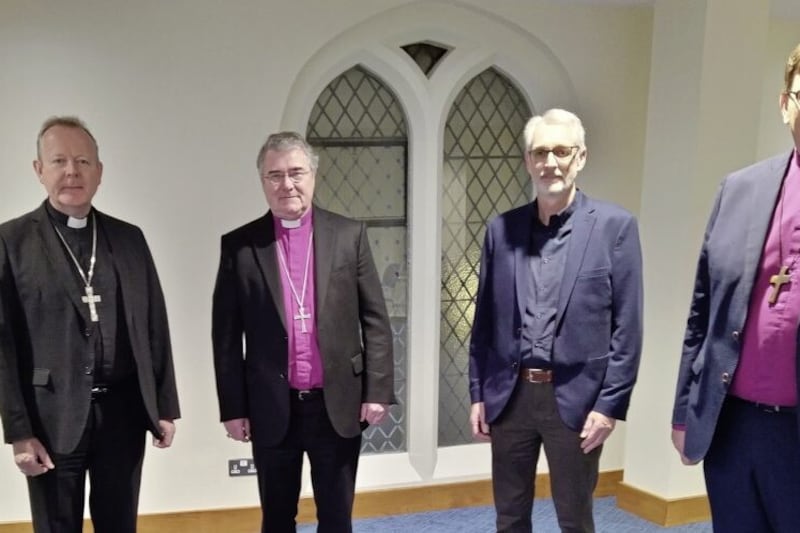IRELAND'S Church leaders have spoken of their hope that the Good Friday Agreement will be a "source of inspiration and a foundation to build upon" as the Brexit process enters a critical phase.
In a joint statement, they said it was "in everyone's interests" that a Brexit deal was reached because it would provide "clarity and security".
"This is especially true for those whose resources are already stretched by the impact of Covid-19," they said.
"We do not underestimate the challenges faced by the negotiating parties in terms of the complexity and the significance of what is at stake.
"As Church leaders on the island of Ireland, we have welcomed the important commitment of both parties in the negotiations to the protection of the Good Friday/Belfast Agreement in all its parts.
"It is our hope that the Agreement might serve as a source of inspiration and a foundation to build upon as we continue to work through the Brexit process."
The Church leaders described the Agreement's preamble as "a powerful reminder that it is relationships that make agreements operational".
"The signatories committed to 'the achievement of reconciliation, tolerance, and mutual trust and to the protection of the human rights of all'," they said.
"Based on these principles, the Agreement created a new space in which to navigate what the preamble describes as 'the substantial differences between our continuing and equally legitimate, political aspirations'.
"The work remains unfinished, but that framework allowed us to address significant barriers to political engagement, promote greater social cohesion and develop our economy."
The Agreement needed to be seen in a global context, as an act of significant leadership "in peace and reconciliation, an achievement that belongs not only to the people of Northern Ireland, but to the British and Irish people and governments, with the support of the EU and friends in the United States".
The statement, jointly made by Presbyterian moderator Dr David Bruce, the Church of Ireland Archbishop of Armagh John McDowell and his Catholic counterpart Dr Eamon Martin, Methodist president Rev Tom McKnight and Dr Ivan Patterson, president of the Irish Council of Churches, emphasised that "an acknowledgement of our interdependence" lay at the heart of the Good Friday Agreement.
"The Covid-19 pandemic has further heightened our awareness of the need to manage risk collaboratively, not only between Britain and Ireland, but on a European and wider international level," they said.
"There are other major challenges on the horizon that are global in nature and will require nations to coordinate their responses and demonstrate a shared vision in their leadership.
"Trade agreements cannot be separated from this wider network of relations because they have vital social and ethical dimensions.
"The future relationship between the UK and the European Union will be the focus of debate and negotiation for many years to come.
"We appeal to the negotiating parties to act with urgency and generosity to secure the best possible foundation for that evolving relationship by giving much needed certainty on the economic and social implications, and providing a framework within which future challenges can be addressed on the basis of relationships of trust and mutual respect."







